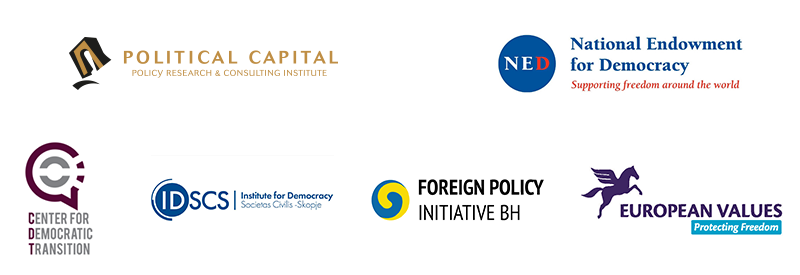Political Capital and its partners from Bosnia and Herzegovina, North Macedonia, Montenegro and the Czech Republic conducted a widespread research on foreign authoritarian influence in three Balkan countries: Bosnia and Herzegovina, Montenegro and North Macedonia. On the one hand, th eproject aimed at understanding the nature of malign foreign influence-seeking primarily from the Russian Federation, Chinese People’s Republic, the Gulf states and Turkey. On the other hand, we wanted to create a tool where this malign influence can be quantified in a way that allows for proper comparison.
As the project’s goal was to identify and compare the patterns of influence-seeking, five distinguished categories were set to be examined:
The partners conducted a meticulous desk research as well as interviews with experts, then quantified the results based on a common rating. Each and every aspect of influence-seeking received a score on the scale of 1 to 7, where 1 stands for no influence-seeking and 7 for very strong influence. In addition, a complete country assessment is provided, backing the rating with hard data and explanation for the score.
In order to see a bigger picture, each country assessment gives a detailed background explaining the vulnerabilities, stemming from socio-economic factors, exposure, political attitudes and receptivity. Although, the vulnerabilities are not measured here, they are essential for understanding the complex nature of influence-seeking.
As we have found, foreign authoritarian influence-seeking in the three examined countries is manifold. Apparently, foreign state and non-state actors do have specific areas where they can exert influence, but their reach and effectivity among others depends on the vulnerabilities as well, and shows a spectacular variation when it comes to exact patterns.
Our study also provides policy recommendations on how to prevent and counter authoritarian influence-seeking.
We are thankful for the support of National Endowment for Democracy, and our partners: Anida Šabanović, Milena Gvozdenović, Marko Pankovski, Veronika Víchová, and Barbora Chrzová.
